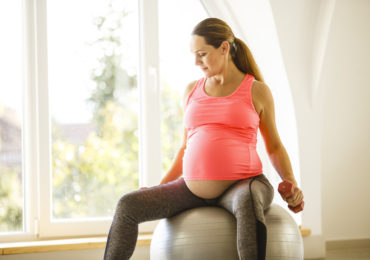FAQ
I’m often asked about my philosophy of birth. My philosophy is whatever YOUR philosophy of birth is – medicated or unmedicated. My goal is to support you to have the most positive birth possible – as defined by you. An epidural is just another tool in your toolkit – and if you need it you need it!
I am a continuous presence (starting in your home) and throughout your labor. If your L&D unit is busy you will not have a nurse with you throughout your labor.
I can help you make informed decisions before during and after your baby’s birth.
When requested I will provide you with the latest research on your options to discuss with your care provider.
I will help you explore your birth preferences and develop comprehensive evidence based birth preferences.
I can come to your home in early labor when you need support and stay with you until you decide to go to the hospital and make the journey to hospital or birth center as smooth as possible.
I do not restrict my labor support only to active labor or when your contractions are coming every 5 minutes.
I’ll be a familiar face at your hospital, offering suggestions for labor positions and comfort measures for your positive birth with or without medication.
I assist in facilitating communication with staff in a collaborative way.
I will help you get breastfeeding established.
When requested I can support you at home after your baby’s birth as you adjust to being a new parent.
There’s very little I don’t do. You can ask your doula to do anything you can think of to help you. An experienced doula will anticipate your needs so you don’t even have to think about what you might need. Whether it’s a position change,making sure your partner gets a break, helping you into the shower or simply making sure you’re never left alone in labor – I’m there for you.
But there are a couple of things that I don’t do.
I don’t speak for you – I will provide you with information so you can make the best decision for you and your baby. Having a doula will give you and your partner the confidence to ask key questions about your care plan.
I don’t make medical judgments or diagnoses.
Although I am a medically trained midwife I do not perform any clinical procedures in my role as your doula including any physical examinations at home.
Usually we will have spent quite a bit of time getting to know each other during our meetings long before your baby’s birth. Think of your doula as a good friend who’ll be with you during the birth and after.
Doulas do not perform any clinical tasks. I am a medically trained midwife but my role as your doula does not include your clinical care. As your doula I am 100% focused on your emotional and physical comfort. This is the part of the job that midwives and nurses enjoy the most but sometimes staffing levels can make it impossible to provide that extra support a Mom needs. Although many hospitals promise 1:1 support throughout your labor this rarely the case. Often your nurse will be looking after at least one other mom in labor. Evidence clearly shows that women with independent – non hospital doulas have better outcomes. Doula care is also associated with better outcomes than women providing support from Mom’s circle of friends/family. Your doula does not replace your nurse but works alongside her in a collaborative way as they complete clinical tasks and documentation. As your doula I fills that gap when your nurse is busy with other patients, is on break or goes home at the end of her shift.
It’s not unusual for a first time labor to last about 24 hours. Yours may be longer or shorter. As I mentioned earlier your nurse often has very limited time in the birth room providing you with continuous support and reassurance. So many parents don’t know this. If you’re planning an unmedicated birth then all of your support falls on your partner – physical, emotional and facilitating your birth preferences.
A good prenatal class is essential for positive birth preparation but the intensity of emotion surrounding the birth of his baby….while providing support to you AND remembering everything he learned in the class is a big responsibility (especially if it’s a long labor).
Having a doula with you means your partner can participate in a way that is comfortable for them. Your doula can remind birth partners about what they learned in the classes if necessary.
Here’s one of my favorite analogies: if your partner is a football fan he’s probably seen plenty of games on TV….maybe he plays on Saturday mornings…but tomorrow he’s going to be asked to coach in the Superbowl. How confident would he feel?
I do my very best to keep partners engaged and informed throughout the birth process. After all your partner knows you a lot better than I do! Having a doula helps your birth partner to provide meaningful support to you. Some partners are concerned the doula will ‘take over’ during labor. Sometimes moms feel they don’t need a doula because their partner will be with them on the day. Your doula supports you both. Most partners have never supported someone in labor before, have limited knowledge about what really happens in birth or the workings of the hospital and will need to leave you for bathroom breaks or sometimes during medical procedures. Some partners are apprehensive about having a doula before meeting me but this is seldom a concern after the initial meeting. Partners report that after the birth they felt reassured having me present and found having the doula helped them be as involved as they wanted to. Birth partners feel much more confident when they are given the tools to support mom. Part of my role is to support your partner so they feel very capable and confident at the hospital and as they adjust to becoming a parent.
Great question!
If this is your first baby I recommend keeping all of your options on the table including medication. You never know you might just surprise yourself! Even if you have planned on getting an epidural early on you will be having an unmedicated labor for at least some of the early stages (even if it’s just the car ride to the hospital).
As your doula I can provide you with support during pregnancy and come to your home in early labor to support you with other comfort strategies until you are at a point when an epidural will be available to you. My clients LOVE using the TENS machine I provide at 38 weeks. It’s also worth considering that being admitted to L&D before 4cm dilation is associated with more interventions and unplanned cesarean births so you may choose to stay home a little longer – as long as you are coping.
Going to hospital with the first contraction does not guarantee you will be immediately suitable for an epidural – you may be sent home. In that case having a doula is invaluable and it’s not unusual for first time moms to go to the hospital too early. Delaying the epidural until you are in active labor can help to minimize some of the epidural risks, such as fetal malpositioning or slowing of labor progress. I can help you with physical and emotional comfort measures to help you with to cope with the sensations until you decide you want an epidural. I will also facilitate position changes on the bed when you have your epidural and provide additional information and support to reduce the likelihood of you having an instrumental birth. In the event your epidural doesn’t work 100% I will be there to help you stay focused and calm.
Some of the benefits are very simple and quite subtle and if you’ve spoken to other parents who have used the services of a doula they will usually say they didn’t realize how much help a doula could be until AFTER the birth. These days the fear of a cesarean birth isn’t so much the driving factor of hiring a doula for many parents but the need to have a trusted guide help them navigate a sometimes confusing system is reassuring. I’m sometimes referred to as a ‘birth strategist’. Many of my clients report how I anticipated their needs throughout the labor including routine medical interventions so they could discuss their care options with their OB/nurse confidently. Allow their experiences to help you make this decision rather than mine.
But let’s get to the research (I’m a fan of robust research data).
Over 20 years of research shows that the presence of a birth doula has a significant impact on the outcomes of births.
31% decrease in the use of Pitocin (drip to speed up labor)
- 28% decrease in the risk of having a caesarean section
- 12% increase in the likelihood of a spontaneous vaginal birth
- 9% decrease in the use of any medications for pain relief
- 14% decrease in the risk of newborns being admitted to a special care nursery
- 34% decrease in the risk of being dissatisfied with the birth experience
Fees vary depending on the doula and the area she works and level of experience you are comfortable with. I have completed 4 years of midwifery training in a hospital setting as well as training doulas around the world.
When your doula makes a commitment to be available to support a birth we must limit the number of clients on our calendar so as to avoid birth conflicts and to ensure that we can support you in labor. When we accept a client and add your due date to our support calendar, we commit to being available 2 weeks beforehand and two weeks after that date. Being on call for up to 4 weeks takes considerable dedication and requires a very high level of personal sacrifice such as missing holidays, anniversaries and birthdays as we can be called to a birth at any time night or day and may spend the next 3 hours or even 3 days with a mom in labor.
Absolutely – it’s a good idea to have a phone call or initial meeting to see if you feel we’ll be a good match. I’m often interviewed by phone with mom and her partner. Once we both agree that we’re comfortable with each other we’ll set our first prenatal. In the Bay Area experienced doulas are in high demand and my calendar fills up quickly.



